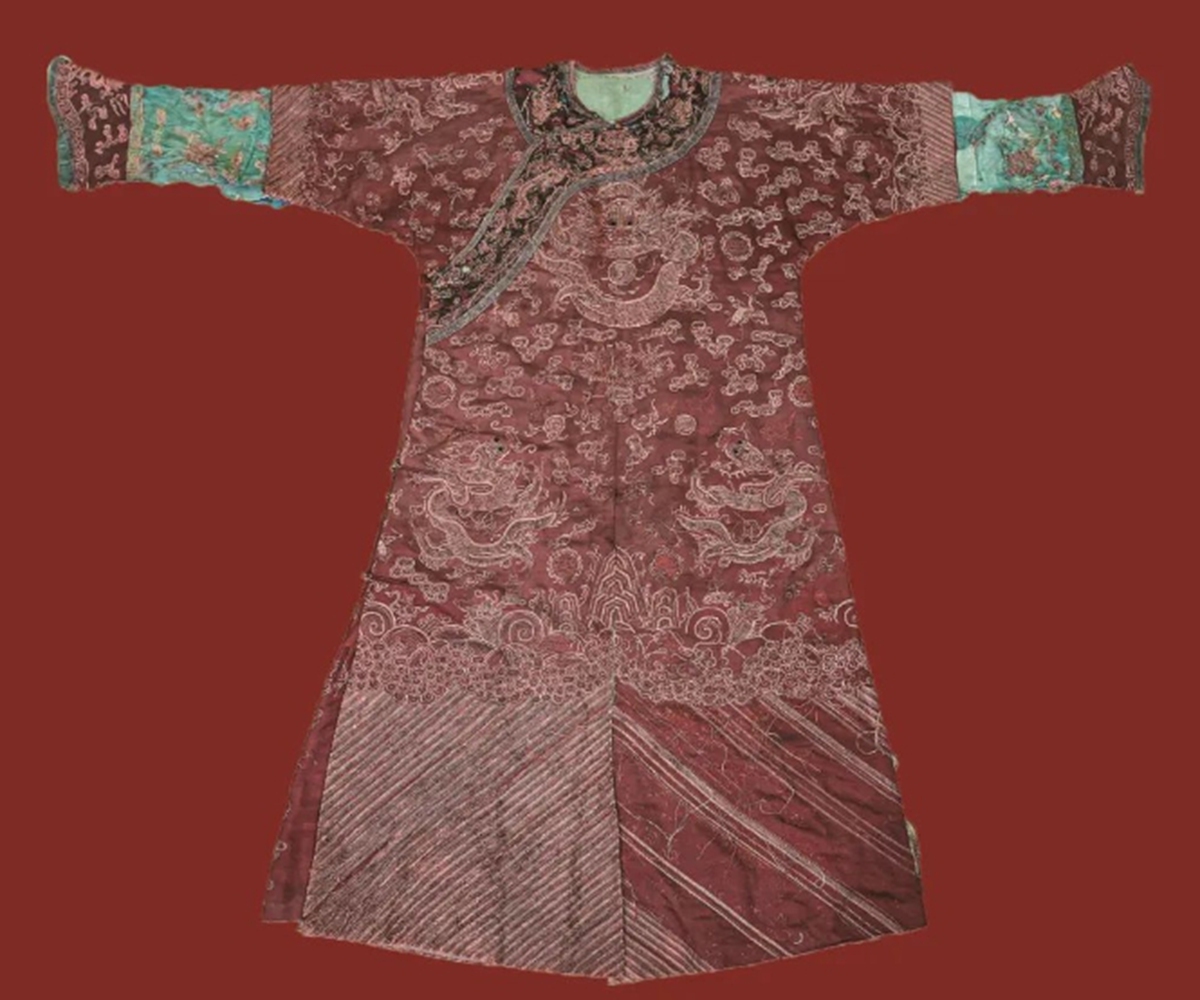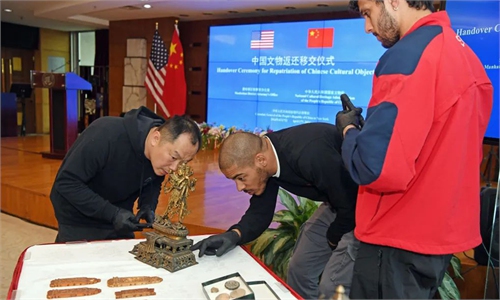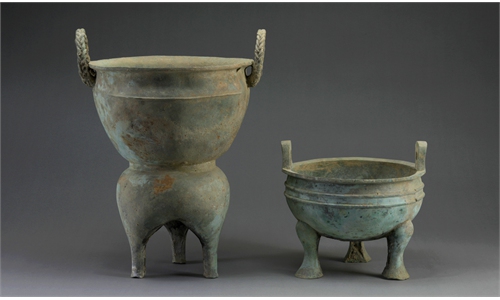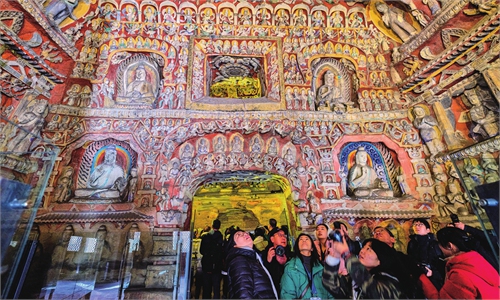ARTS / CULTURE & LEISURE
American-donated Qing Dynasty robe given to Shandong University Museum

Photo: CCTV
A Qing Dynasty (1644-1911) silk robe was donated to the National Cultural Heritage Administration (NCHA) by the great-grandson of US missionary Watson McMillan Hayes, who played a key role in establishing the Shandong University in 1901 at the invitation of local officials. On Wednesday, the robe was allocated to the Shandong University Museum by the NCHA, reported the China News Service.
This robe is made of silk and features traditional flat gold embroidery, with some patterns embroidered in colored silk thread over the gold threads. This robe, which had been preserved by Hayes' family, holds historical significance in the founding of Shandong University.
Paul Hollister, Hayes' great-grandson, recently expressed his intention to donate the robe to the NCHA, specifying that it be housed in the Shandong University Museum.
Respecting the donor's wishes, the Ministry of Culture and Tourism's Vice Minister and Director of the NCHA Li Qun presented the collection registration document to the Shandong Provincial Cultural Heritage Administration.
The NCHA stated that the robe housed in the Shandong University Museum will continue to create new stories of friendship between the peoples of China and the US.
In recent years, the donation and return of cultural relics from the US to China have become an important part of China-US cultural exchanges.
In April, Chinese officials received 38 cultural relics returned by the Manhattan District Attorney's Office.
Most of the cultural relics are Tibetan Buddhist artifacts from China, dating to the Yuan (1279-1368), Ming (1368-1644) and Qing dynasties, with rich variety and exquisite craftsmanship. Among them, ivory carvings, wooden sculptures, and fragments of murals are particularly rare and hold significant historical, artistic and scientific value.
In January 2009, China and the US signed a memorandum of understanding that aims to prevent the illegal import of Chinese cultural artifacts into the US. Its validity was extended for a third time on January 14, 2024.



